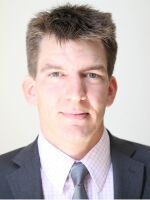It’s no exaggeration that big money has changed the political landscape this election year.
The Republican presidential candidates and the president himself have all turned to so-called SuperPacs which can raise unlimited amounts of money.
One of the more successful SuperPacs so far has been the one supporting Mitt Romney.
But one of the former Massachusetts Governor’s most ardent supporters is Arizona Senator John McCain, one of the sponsors of campaign finance reform.
And he's not happy about the contradictions.
A decade ago Senator John McCain received a lot of pushback from his party for teaming up with liberal Senator Russ Feingold to overhaul U-S elections.
The Bipartisan Campaign Reform Act of 2002 – dubbed McCain-Feingold – capped what corporations could spend on elections and banned unregulated donations.
A major component of the law was overturned by the Supreme Court’s 2010 ruling called Citizens United.
“[The] United States Supreme Court out of ignorance and stupi....er....naivety issued one of the worst decisions in history, said Arizona's senior Senator, John McCain.”
The High Court ruled that corporations and unions have the same first amendment rights as individuals. Since then, the nation has witnessed the rise of so-called Super PACS, organizations that can legally collect unlimited political donations and spend them as they want.
They’ve already spent more than ninety million dollars this cycle. McCain is backing former Massachusetts’s Governor Mitt Romney who is receiving the most assistance from Super PACS. Even though McCain doesn’t like the new campaign finance environment, he says Romney’s camp isn’t doing anything wrong.
“They’re playing by the rules and the rules have been changed by the Supreme Court much to their everlasting shame,” McCain said.
President Obama reversed himself this year and is now allowing Super PAC to fight on his behalf this fall.
And former House Speaker Newt Gingrich’s Super PAC support embodies what most campaign watchers fear.
He’s been keeping afloat by the more than ten million dollars from the family of one wealthy Las Vegas casino mogul. That’s a distortion of the first amendment according to Phoenix Democratic Representative Ed Pastor.
“The freedom to speak is greater with people that have a lot of money," said Pastor. "So it’s really skewed now what’s going to happen in election. Super PACS are starting all over the place. If you have one or two people that have a lot of money that means they can influence elections all over the country.”
But Flagstaff Republican Paul Gosar disagrees.
He says money and politics have always been strange bed fellows.
“This isn’t something new," he said, "this is about all the way across the board, and politics isn’t fair. The money, you know, everyone has a chance to speak. And we’ve got to look at that in a clear light.”
Since the Supreme Court ruled that political donations are a form of free speech, and therefore guaranteed by the First Amendment, any attempt to change the law would be difficult.
Senator McCain says that has left him and others scratching their heads.
“Well the problem is we don’t know exactly what to do because they viewed on a Constitutional issue," he said.
In the meantime, McCain predicts the worst.
“There will be scandals, there will be scandals," McCain predicted. "Don’t worry there’s too much money washing around. But it’s distorted the whole political process. Suppose a Senate race, suppose you have a tough Senate race okay: ten people get together and put together $10 million each, in most states that would have a huge affect of any election.”
Representative Pastor says that’s why he’s changed his views on campaign spending.
He says if the court says corporations and people can give unlimited amounts to outside Super PACS then individual donors should also be able to do the same to politicians, but with some strings attached.
“A person or a corporation or a union or a group should be able to give as much money as they want to the candidate," said Pastor, "and the candidate, if he accepts that, there has to be immediate – immediate – because today we have the electronic reporting, immediate disclosure of who the person was, how much money was given and whatever other detail you want to include in the reporting and that’s the only way you’re going to get transparency.”
But as of now, the brave new world of campaign finance is here.
And election watchers predict the tens of millions of dollars spent by Super Pacs so far will be dwarfed during the general campaign.




